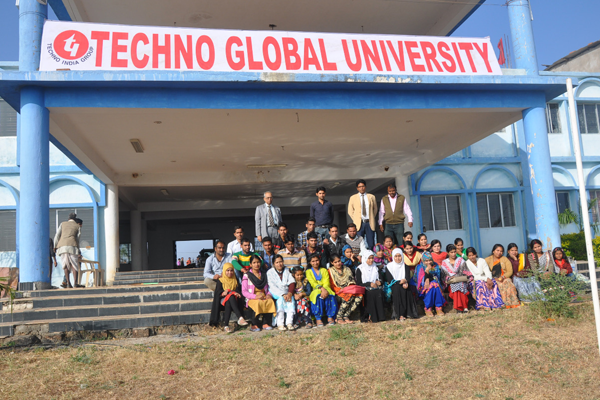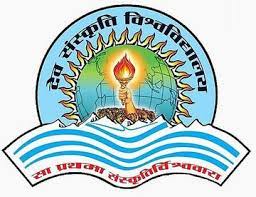The PhD program in environmental sustainability is offered at the ASU Tempe campus. The program focuses on the integration of scientific knowledge and leadership in solving today's pressing environmental problems. It is flexible and emphasizes the study of problem areas that are relevant to students. In addition to utilizing the latest research methods and tools, the PhD program draws on a number of disciplines. To apply for the PhD in environmental sustainability, prospective students need to have a master's degree from a regionally accredited university, or a US bachelor's equivalent. The PhD degree entails advanced knowledge in a variety of disciplines.
The Ph.D. in environmental sustainability is a rigorous graduate-level program in environmental science that equips graduates with diverse perspectives and the necessary skills to solve pressing environmental issues. The degree focuses on innovative approaches to the field, including life-cycle assessment, pollution prevention, and closed-loop supply chain management. The curriculum includes world-renowned faculty with expertise in a variety of fields, including biofuels, energy policy, resource recovery, and smart products.
The curriculum for this Ph.D. in environmental sustainability is rigorous and diverse. The program is based on interdisciplinary research and is aimed at advancing natural sciences. While the program involves extensive coursework, the emphasis is on applying the knowledge gained to solve environmental problems. The coursework can include international development, climatology, and qualitative and quantitative research methodologies. It is possible to earn your PhD in environmental sustainability while continuing to work in a professional setting.
Ph.D. in Environment and Sustainability Eligibility
Candidates who want to take admission in Ph.D. must have a post graduate degree in Environment and Sustainability and its relevant discipline with at least 55% marks from a recognized university and must have passed the national level entrance examination or university level entrance examination. National level entrance exam like UGC NET / UGC CSIR NET / GATE / SLET or University entrance exam consisting of written test and personal interview.
The Benefits of a Ph.D. in Environment and Sustainability
A Ph.D. in environment and sustainability helps students think more broadly about the world and develop solutions to today's complex environmental challenges. Graduates are well-versed in biofuels, resource recovery, energy policy, and smart products. This interdisciplinary degree program encourages students to think outside the box and consider the consequences of their decisions on our environment. It can also be very advantageous if you are interested in international development and public policy issues.
A Ph.D. in environment and sustainability prepares students for diverse careers. They are immersed in cutting-edge research into ecosystem sustainability and work with world-class scientists and nonprofit organizations to address global challenges. The program emphasizes interdisciplinary approaches and provides students with the skills needed to conduct original research. It fosters innovation, experimentation, and creativity. Unlike other Ph.D. programs, an environment and sustainability doctoral degree program is designed for the interdisciplinary student.
A Ph.D. in environment and sustainability equips students with a variety of perspectives and skills. It provides a deep understanding of environmental science and prepares students for careers in environmental and sustainable issues. They also gain valuable hands-on experience in a wide range of fields. Its curriculum incorporates interdisciplinary courses and training. The program prepares students to take on a variety of roles, including environmental managers, researchers, and policymakers.
The Career and job Opportunities of a Ph.D. in Environment and Sustainability
There are many different kinds of careers for graduates with a PhD in environmental sustainability. Some of these positions involve research and international development, while others focus on environmental economics. These PhDs can be valuable for a number of reasons, and they may even give a PhD holder a leg up when it comes to getting a job. You can find out more about these careers below.
With a Ph.D. in Environment and Sustainability, you can enter the environment protection sector, which is growing rapidly. The field of sustainability has expanded to cover virtually every industry. For example, if you have a background in environmental sciences, you can become a government researcher or a health and safety technician in an occupational setting. Your career options are limitless. You can even become a professor or program manager.
If you have a strong interest in environmental issues, a PhD in this field may be the perfect fit. You'll gain a broad, multidisciplinary understanding of environmental science, and you'll be well-prepared to work in a variety of fields. For example, you could become a researcher for government agencies, or you could become a health and safety technician in an occupational setting. Depending on your background, you can even become a climate-change policy maker or a university professor. In any case, there will be plenty of opportunities for you to use your Ph.D. in Environment and Sustainability.
Future Scope of Ph.D. in Environment and Sustainability
The future scope of a Ph.D. program in environment and sustainability is quite broad, covering the fields of environmental science, ecology, and the natural sciences. Graduates of environmental science programs will be well-equipped for postdoctoral research in the field, including government agencies and the private sector. Moreover, a degree in this field will help students to pursue their careers as researchers in a wide variety of fields.
Graduates will be equipped with various perspectives and expertise, enabling them to address pressing environmental challenges. The Ph.D. in environment and sustainability equips students with the knowledge necessary to tackle environmental issues and contribute to the solutions to these problems. In addition to this, the degree will give students the opportunity to develop practical skills, such as analyzing data, identifying potential solutions, and implementing new technologies. As a result, this program is well-suited for a diverse range of career paths.
Students who complete a Ph.D. in environment and sustainability will be equipped with the knowledge needed to tackle the biggest environmental issues. They will be able to develop solutions to environmental problems that affect our health and the quality of life. They will also be better equipped to apply their skills in different disciplines to address these issues, as they will need to take into consideration physical, social, and economic aspects.
Ph.D. Research Programme duration
The Ph.D. in Environment and Sustainability course is minimum 3 years and maximum 5 in duration. This depends on the university offering the course.
Fees for research programme for Environment and Sustainability
The average fee for Ph.D. in Environment and Sustainability degree is between INR 50000 and INR 500000.
 5 Years
5 Years
 PhD
PhD
 Research
Research

































 back
back